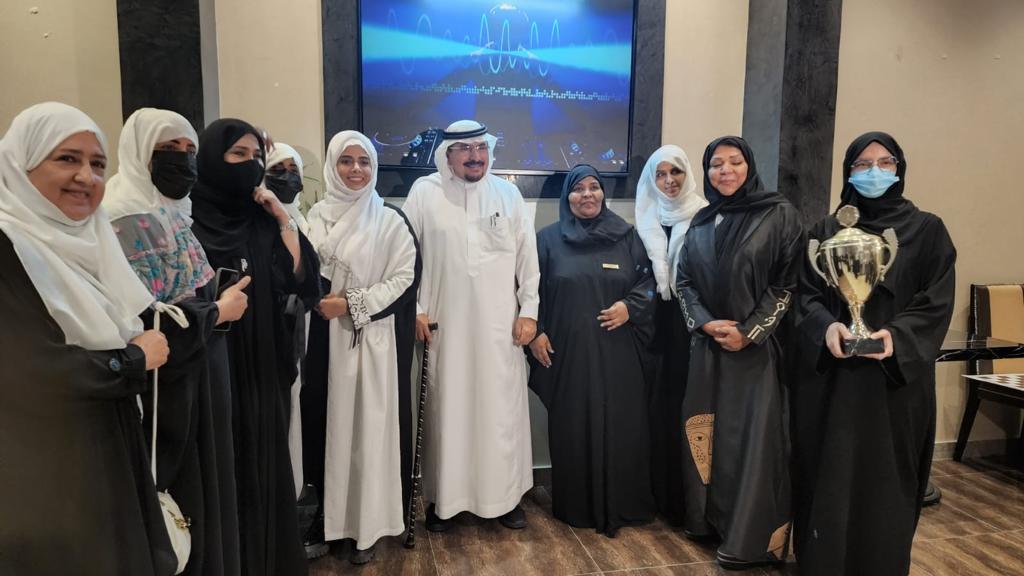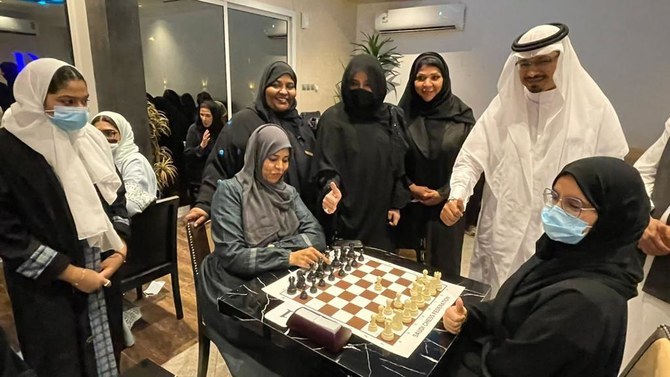JEDDAH: Members of the Women’s Association for Hearing Impairment in Jeddah (Emkan) triumphed in a Jeddah chess tournament recently, competing against those without hearing impairments to win the top four places.
Emkan president Princess Nouf bint Muqrin bin Abdulaziz on Friday honored Shadin Al-Amr for winning first place in the Jeddah chess refresher tournament for women.
She also honored Ibtisam Ba-Saeed, Sawsan Saleem, and Rania Al-Faham for coming in second, third, and fourth place.
The tournament, which was organized by the women’s committee at the Saudi Chess Federation, was attended by Saeed Al-Qahtani, president of the Saudi Deaf Sports Federation, Al-Jawhara Al-Hasan, head of the SDSF’s chess committee, and Ayman Al-Harbi, director of Jeddah’s social development center.
Emkan vice president Faiza Natto and Saudi Arabia’s first female chess referee Al-Anoud Isaac were also among the participants.

Natto told Arab News that the number of hearing-impaired women in the tournament reflected the state's interest in developing the skills of Saudi women in general and those with impairments in particular.
She said their presence also proved the government’s keenness to enhance the participation of the hearing-impaired community in society, especially in sports and activities requiring a high level of intellectual skill.
“At the association, we provide our 200 members with social, cultural, and sports programs. Two months ago, we founded a team of chess players, whose ages range between 30 and 40,” she said.
She added that Emkan also offered programs that improved members' skills, including photography and sewing.
“We also conduct seminars on social, religious, health, and psychological topics to enrich their knowledge. These programs and others are all meant to fit them in society.”
She said she valued the great support that Princess Nouf was providing to motivate women with hearing impairments and integrate them into the wider community. “This is one of the main objectives of Emkan in Jeddah.”
She said the association was working on expanding its partnership with all Saudi federations for women's sports, especially the Saudi Chess Federation.
“As a result of this partnership, five of our hearing-impaired champions last week competed against seven chess players from the Makkah region. Despite the participation of ordinary players in the tournament, two of our team, Fatima Al-Amoudi, and Rasha Abu Zaid won third and fourth places, respectively,” Natto said.
Al-Hasan said the tournament was part of the social responsibilities that the SDSF was committed to, adding that Saudi women had left the spectators' seats to become event makers in their own right through their active participation in the sports sector.
She said previous tournaments had uncovered a lot of chess talent among Jeddah women with hearing impairments.

























